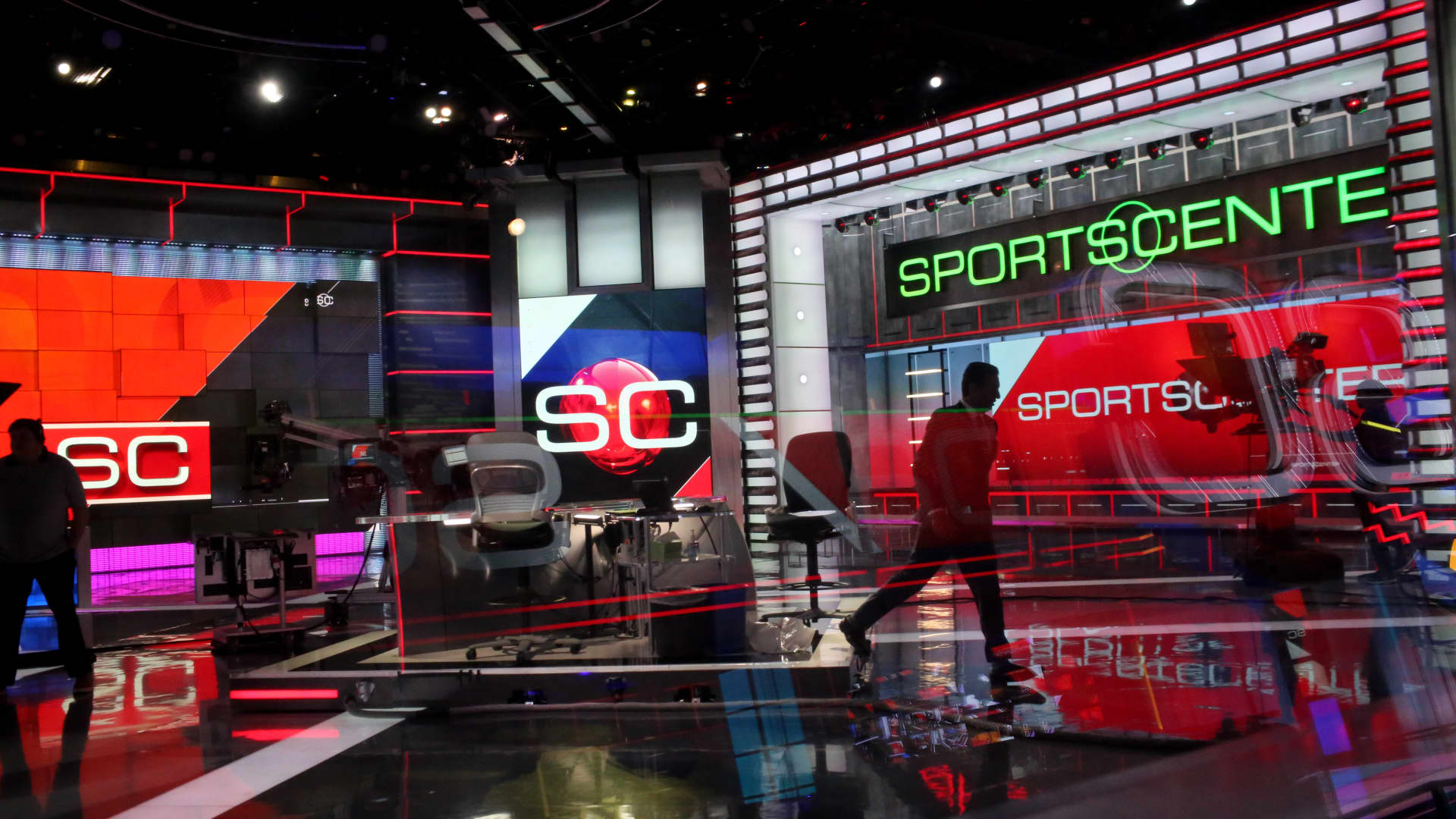Disney‘s ESPN is launching a betting sportsbook, putting the sports entertainment unit deeper into the wagering world.
U.S. gambling company Penn Entertainment said it is partnering with ESPN to rebrand and relaunch its sportsbook as ESPN Bet. It’s the first time ESPN’s brand will be on a sports betting platform.
ESPN Bet will take over Penn’s Barstool Sportsbook and become ESPN’s exclusive operation. It will launch this fall in the 16 legalized betting states.
ESPN had been looking for a partner in the sports betting business for sometime. Last fall, former CEO Bob Chapek said that while ESPN will never take bets itself, it wanted to partner with a gambling company.
Penn has the exclusive right to the ESPN Bet trademark in the U.S. for 10 years, which may be extended another 10 years if the two come to a mutual agreement.
As part of the deal, Penn will pay ESPN $1.5 billion in cash over the 10-year period. The agreement also grants ESPN about $500 million of warrants to buy approximately 31.8 million Penn common shares that will vest over the same period.
ESPN will also have the option to designate one non-voting board observer to Penn’s board, or after three years, designate a board member subject to certain regulatory approvals and a minimum ownership threshold.
Penn will be divesting its stock in Barstool to founder David Portnoy. Penn became sole owner of Barstool in February when the company completed its acquisition of Barstool for $388 million.
Through the latest agreement, Penn will have the right to 50% of the gross proceeds that Portnoy receives in any future sale or other monetization of Barstool.
Penn’s stock was up roughly 20% in after-hours trading Tuesday, while Disney was slightly up. Disney and Penn both report earnings on Wednesday.
Penn said in Tuesday’s release the deal will add an estimated $500 million to $1 billion in annual long-term adjusted earnings potential in its interactive segment.
In March year, Penn reported that its sports betting business turned a profit in the final three months of the fiscal year, the first U.S. sports gambling company to do so during that period. Typically its harder for a sportsbook to post a profit during the third and fourth quarters because companies spend more on marketing and promotions during the football season.
At the time, Penn had attributed the profitability to its marketing approach and relying on cross-platform promotion from Barstool.
